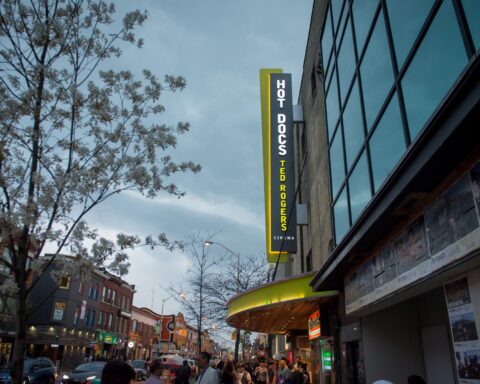The Edge of Democracy
(Brazil, 112 min.)
Dir. Petra Costa
Programme: Special Presentations (Canadian Premiere)
Petra Costa’s political documentary The Edge of Democracy is like none other, a work both intimate and grand in scope. Her incredible access to the political ruling class of her native Brazil results in a film, which truly tracks history in the making, tracing what may well be the dying throes of the country’s experiment in liberal democracy. It’s a film of sophisticated nuance and balance, showing the various factors that are contributing to Brazil’s current fractured state, resulting in the arrest and impeachment of its most recent leaders.
Costa’s film begins with the rise of Luiz Inácio Lula da Silva, a worker who transformed his activism to lead his nation in a vastly more progressive direction. Until the mid-1980 Brazil was controlled by a series of military and oligarchic forces, each exploiting in various ways the resources of the nation, which resulted in massive stagnation and corruption. While general elections arrived by the end of the decade, it was the rise of Lula in 2002 that showed the world the new direction for this South American nation.
This was “hope and change” before Obama popularized the notion in the U.S., and Lula’s PSOL party tried to balance center-left and far-left participants. The world took notice, especially as there was a massive shift in the economic status of Brazil’s citizenry, with tens of millions rising from abject poverty in the massive transformation. Despite a series of scandals that hinted at continued corruption, Lula would rule two terms, picking as his successor Dilma Rousseff, who in 2010, was voted in as the first woman president of her country.
It’s these two that Costa focuses on, her own family allowing her unparalleled access to the leaders as they encounter major blows to their reputations. The film examines in depth the massive levels of hypocrisy that fueled even these supposedly activist individuals, showing that political power especially in the South American context is never quite as pure as it purports to be.
Costa’s family reflects the many paradoxes at play. Her mother was a strident activist who emerged from a family that helped buttressed the oligarchic system of control at the heart of the nation. The various factors that have resulted in corruption both financial and moral set the stage for the current swing back to the right and the disparagement of the dream from those who helped shaped the last few decades.
The Edge of Democracy not only provides a deeply effective examination at the rot of political power on the left, it even sets the stage for how the country could swing so radically to the right in response. The populism of Jair Bolsonaro is anathema to many, spelling doom for an experiment in socialist policies undermined by incompetence and avarice, which Costa’s film illuminates. Yet the heartbreaking failures on the left surely helped fuel such a reaction, trading promises of stability from a strongman instead of lies from idealists.
Costa’s examination is not simply an excoriation of what came before. It provides brilliant context and balance to the story, showing that the same forces that give rise to the Right helped overshadow their own hypocrisies, using notions of purity of behaviour, long a factor in the left’s ideology, against them. Echoes of this are occurring throughout the world, with the rise of Illiberal democracies foreshadowed decades ago coming to power, and seemingly immortal institutions being bent to the breaking point by those using the very strictures of civilization against itself in order to consolidate their new regimes.
The Edge of Democracy is a harrowing cautionary tale told with a sense of grandeur. The images mix the beautifully staged with the rawness of handheld captured moments. This is a deeply intimate story about the filmmaker’s own country and her inexorable connection to it, but its lessons and warnings are anything but localized. Journalistically bold, this highly personal, highly political work sheds light on the unique aspects of Brazil’s situation, but equally on the ever-changing landscape that permeates Western systems as forces of change sway populations further and further over the edge of democracy towards the unknown.
Visit hotdocs.ca for film information and showtimes.












